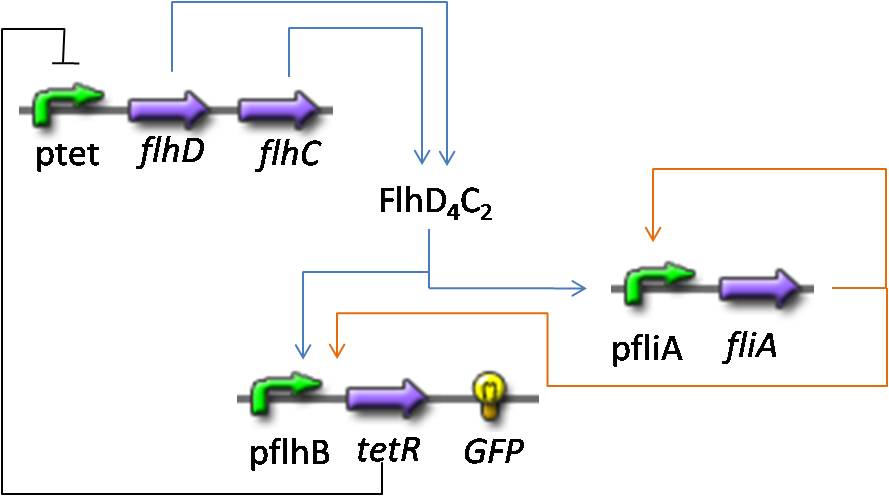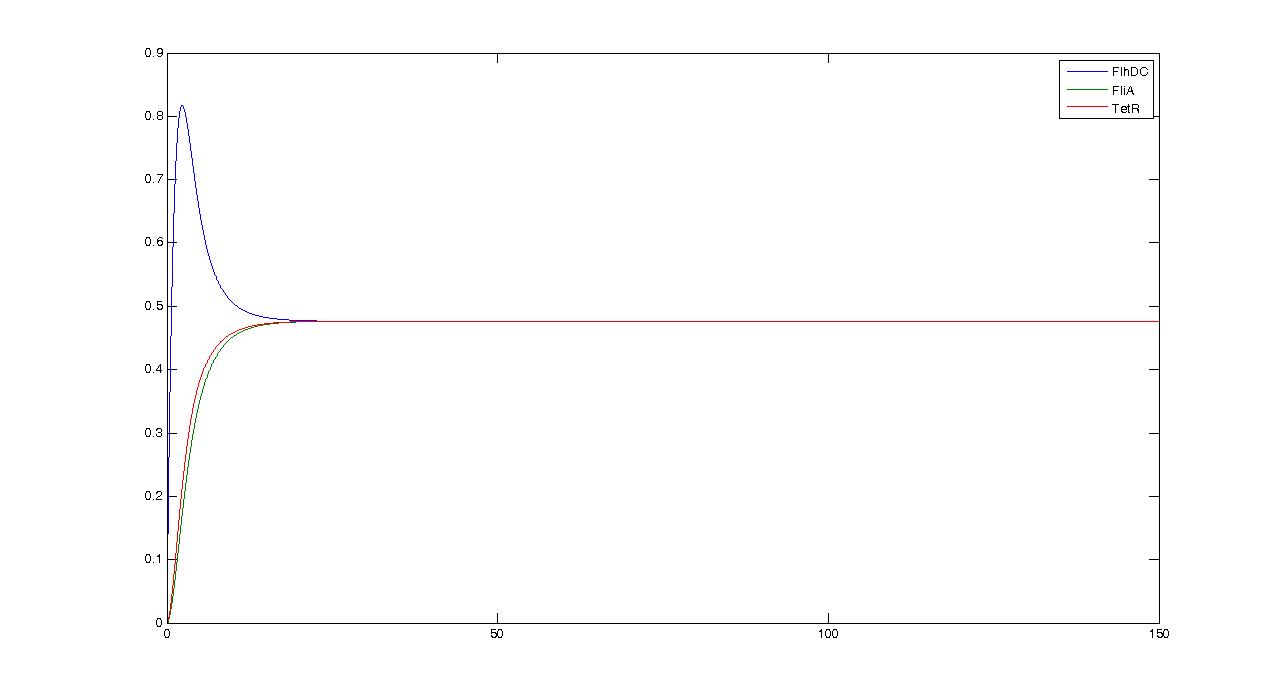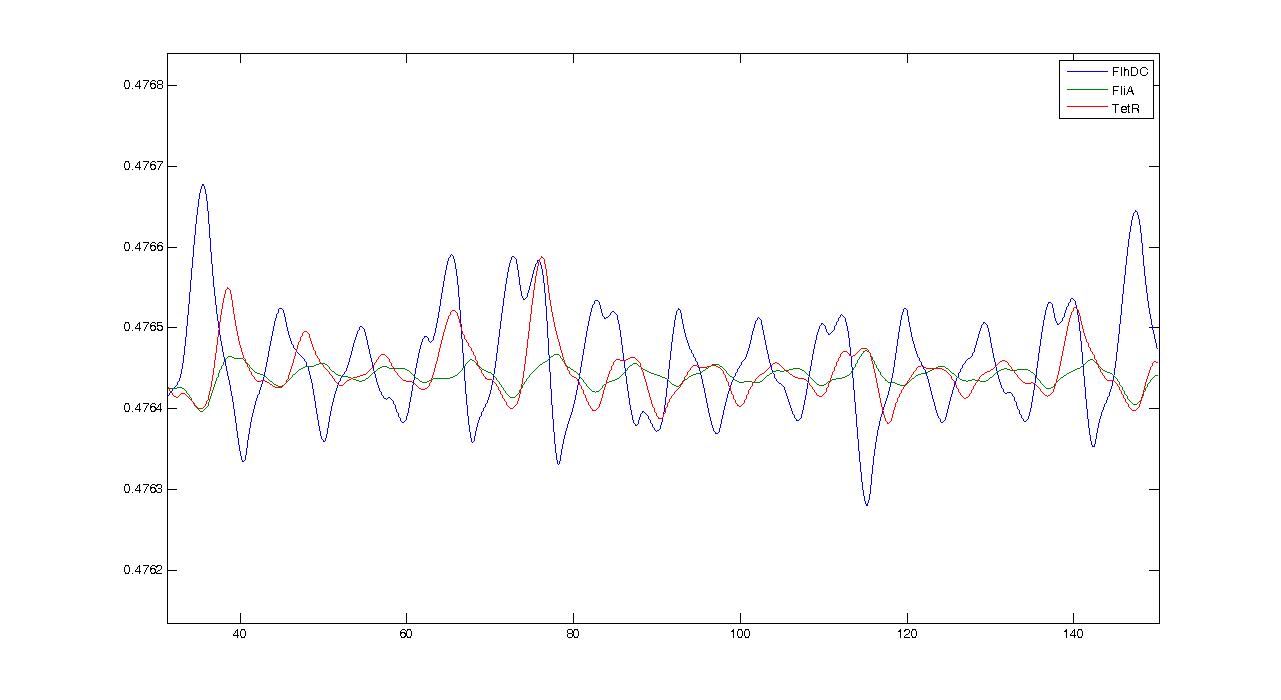Team:Paris/Modeling/BOB/Simulations page travail
From 2008.igem.org
(Difference between revisions)
(New page: {{Paris/Menu}} (Under Construction : synchronisation and whole system) <br> <center><html><div style="color:#275D96; font-size:2em;">Simulations and Mathematical analysis</div></html></ce...) |
|||
| Line 27: | Line 27: | ||
|- style="background: #dddddd;" | |- style="background: #dddddd;" | ||
| style="background: #D4E2EF;"| θ<sub>FlhDC</sub> | | style="background: #D4E2EF;"| θ<sub>FlhDC</sub> | ||
| - | | 0. | + | | 0.4545 |
|- style="background: #dddddd;" | |- style="background: #dddddd;" | ||
| style="background: #D4E2EF;"| n | | style="background: #D4E2EF;"| n | ||
| Line 45: | Line 45: | ||
|} | |} | ||
</center> | </center> | ||
| + | * As introcued befoe, the goal of this model was to give us useful bases on which to work on. Then, we shall use the values of the parameters presented below as a "starting point". Again, we shall present a double approach, composed of a theoretical and a simulation approach. Both approaches should interact so as to help us understand the way our system behaves. | ||
| + | * First of all, let us see what the simulation gives, and what pieces of information we can get from it. | ||
| + | By looking at this simulation, we could think that it is going to be hard to get oscillations... | ||
| + | [[Image:Simul_fig1.jpg|center]] | ||
| + | However when we zoom, we get this more reassuring view : | ||
| + | [[Image:Simul_fig2.jpg|center]] | ||
Revision as of 22:27, 6 October 2008
|
(Under Construction : synchronisation and whole system)
Simulations and Mathematical analysis
OscillationsShort System
By looking at this simulation, we could think that it is going to be hard to get oscillations... However when we zoom, we get this more reassuring view : |
||||||||||||||||||
 "
"



